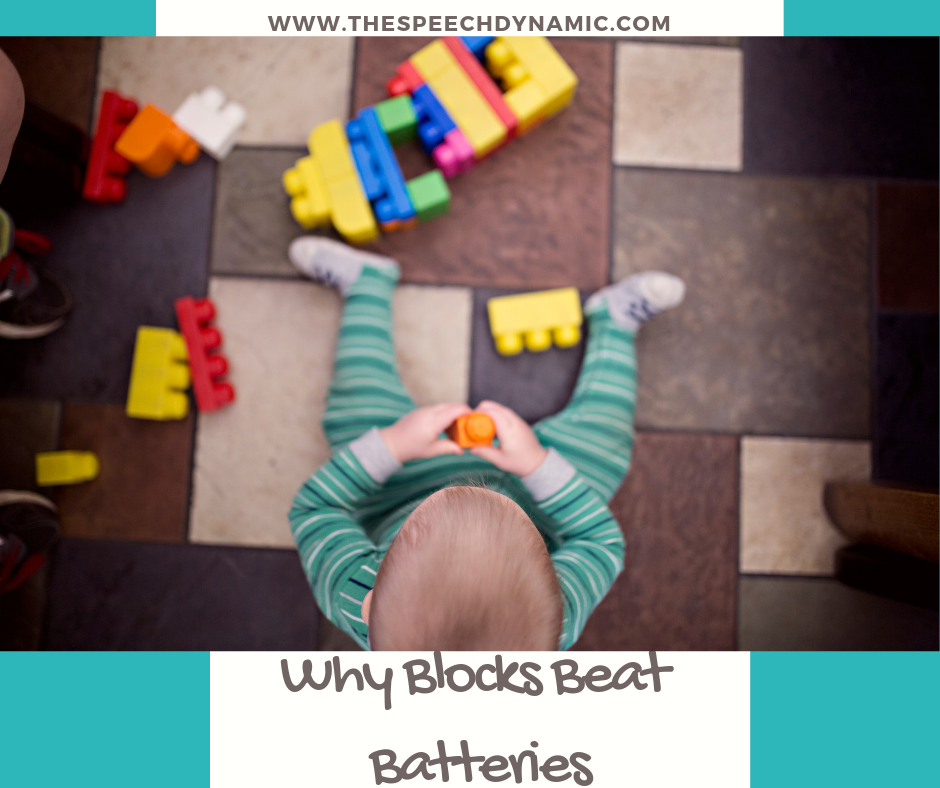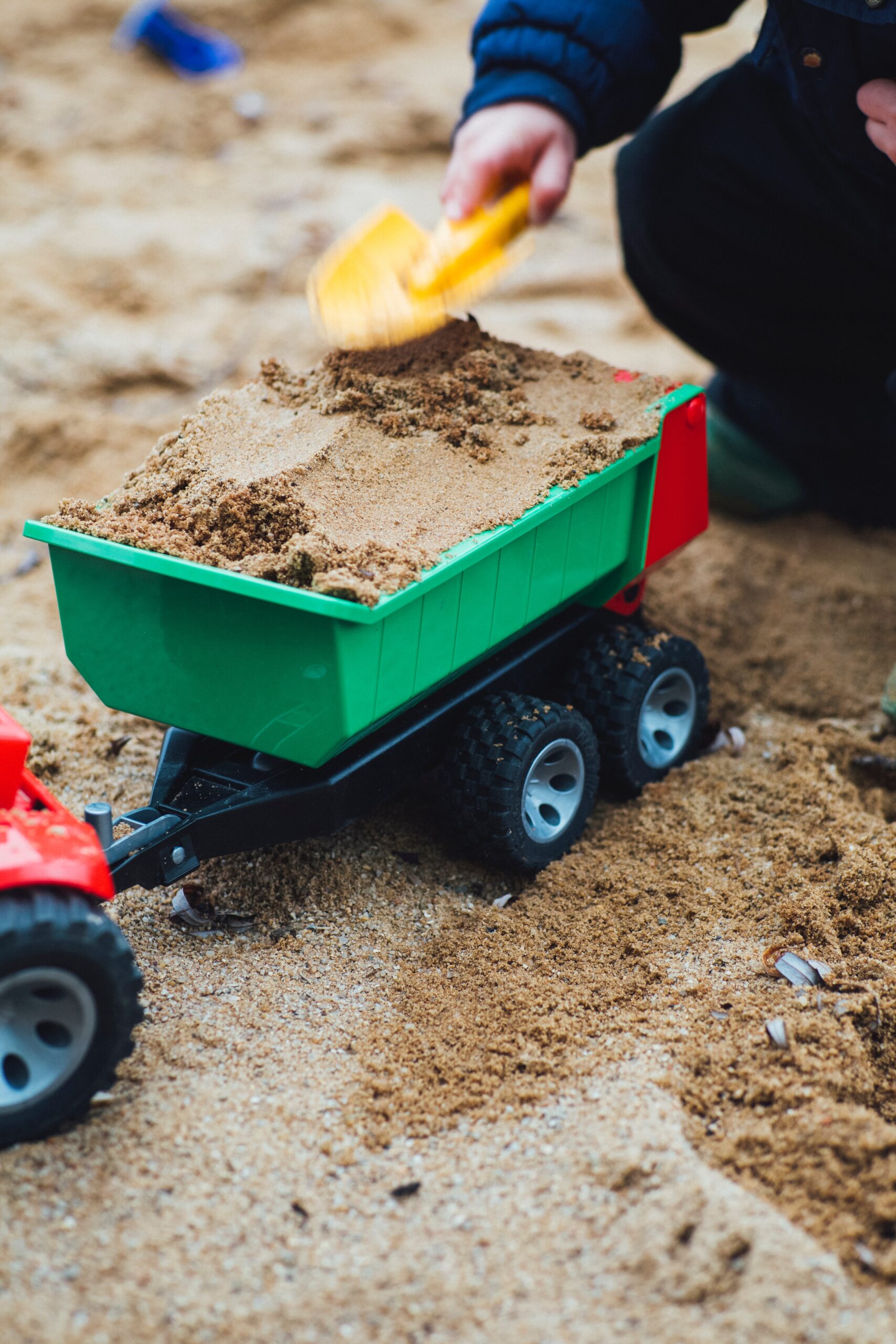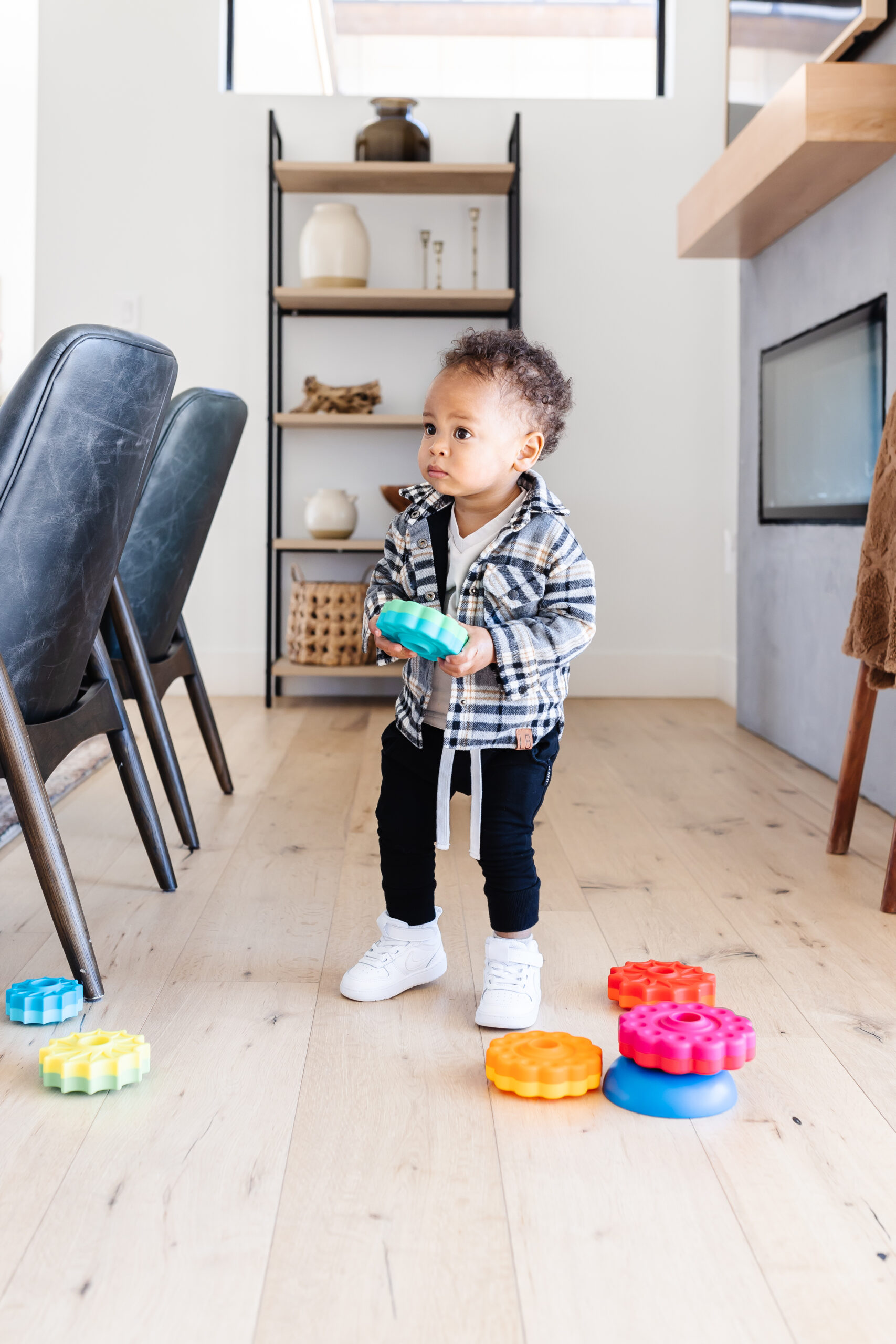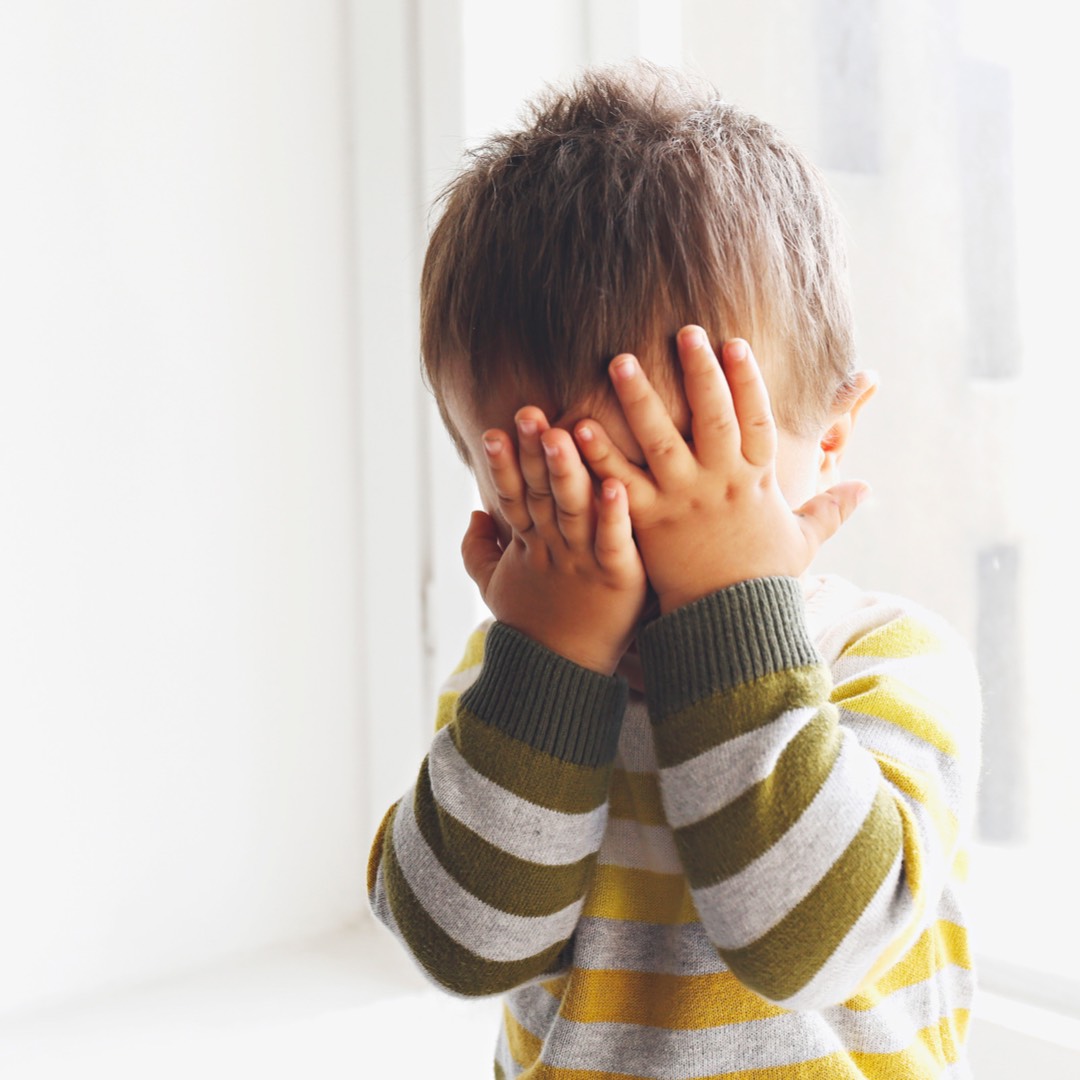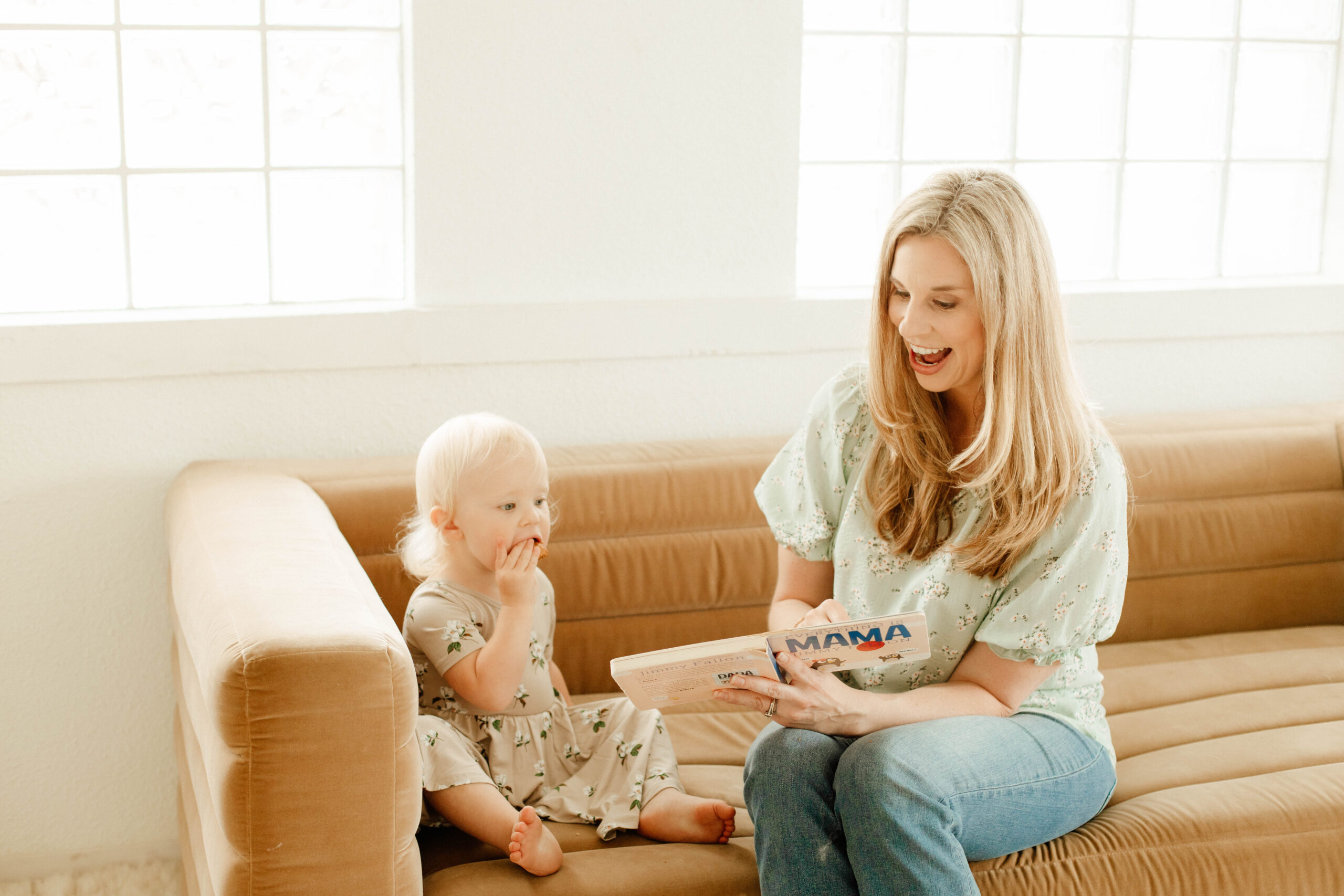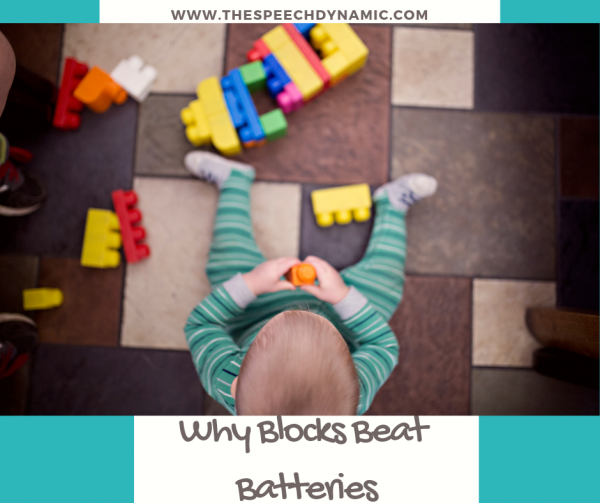
Play and Developing Brains:
Walk down any toy aisle and there is no shortage of new and exciting toys. It’s easy to think the more “bells and whistles” the better. In fact, simple toys such as blocks and baby dolls provide children with everything they need for building important cognitive and language skills.
Play and Executive Functioning:
Executive Functioning: Executive Functions (EF’s) are a set of skills needed by an individual to be able to engage in deliberate self-regulated behavior (Bogen, 2016). Basically, they are the cognitive processes we use to plan, execute, and follow through with any task. The Harvard Center on the Developing Child has listed these three areas as the most important areas for developing good executive functioning skills in the preschool years:
- Working Memory: Helps us remember information such as remembering a story to answer questions and remembering whose turn it is during a game.
- Inhibitory Control: Helps us to “stop and think” before acting.
- Cognitive Flexibility: Enables us to apply different rules in different settings. Helps us to revise our plan and come up with a “Plan B.”
Play helps children develop all of these areas. While playing “house,” children need to use inhibitory control to keep from hitting another child who stole their toy, working memory to remember their role (mommy, baby, etc.) and mental flexibility to add props to their play. This is where toys like blocks really shine. Since blocks are simply 3D shapes, they can be anything. A block can be the baby’s bottle or the family’s telephone. Children can project their own imaginations onto them. They get to practice being flexible! Cognitive flexibility is essential for problem solving since it allows us to see alternate solutions to a problem. It’s also important for being successful in social situations since other people will have different ideas than us. In other words, cognitive flexibility is imperative for success in academics, relationships, and the workplace.
The bigger the “leap to pretending” in play (e.g. the less it looks like the actual object), the more cognitive flexibility the child has to use. This is where high tech toys such as battery-operated toys fall short. Many high tech “learning toys” teach specific information such as letters or numbers rather than building a strong foundation for learning. The more a child pretends, the more they learn how to be creative, a skill that can give them an edge in play and in life.
Play and Language Skills
Language: A study from Northern Arizona University found that play with electronic toys does not promote language development in young children as much as traditional toys such as books and wooden puzzles. They also found that electronic toys were associated with decreased quality and quantity of language between parents and children.
Language develops through interaction. The back and forth communication between a baby and parent become more sophisticated over time. The child learns how to communicate intentionally and eventually to use language. Young children continue to develop their language skills by learning about the world around them through experiences and interactions with caregivers. Electronic toys cannot adapt to teach children about what they are interested in. The rich context for language learning is restricted to whatever is programmed into the toy. Ultimately, there are less opportunities for social interaction and therefore less opportunities for learning language.
Developing Social Skills
Social: Starting around ages four to five, children engage in more cooperative play. They start to follow a “group plan” (Michelle Garcia Winner-SocialThinking) for their play and build skills such as negotiation, conflict resolution, and friendship. Using traditional toys such as blocks, children can work together to create whatever their “shared imagination” desires. During cooperative play, there are many opportunities for social interaction and building skills that are important for working with others and building friendships.
Play and Motor Skills
Motor: Playing with toys like blocks develop fine and gross motor control by strengthening a child’s fingers, hands, and arms as they reach, move, and build. Children also improve their hand eye coordination and visual perspective taking as they figure out which blocks fit where.
Manufactures are constantly coming up with the “latest and greatest” toy. The problem is the more it changes, the further away it moves from the traditional toy, along with its benefits. While high tech toys are not bad, it’s important to remember the skills traditional toys help build. When purchasing a toy, it can help to think about how much work the toy is doing vs how much imagination your child needs to use with the toy. Eventually play “grows up.” The same skills built during play such as creativity and innovation, navigating social situations, and using language effectively are the same skills that help to make us successful and happy adults.
Resources:
http://jamanetwork.com/journals/jamapediatrics/fullarticle/2478386
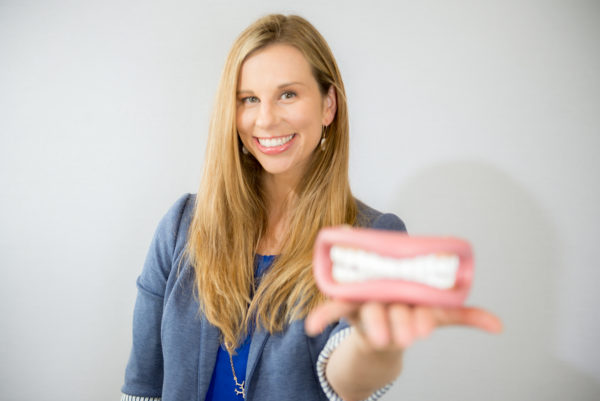
Brooke Andrews, M.A CCC-SLP is the owner of The Speech Dynamic, PLLC in Houston, TX. Se specializes in working with toddlers and preschoolers with speech and language delays.
